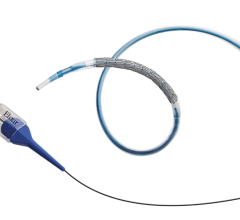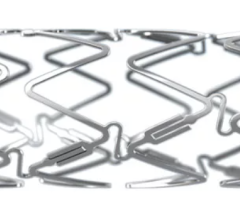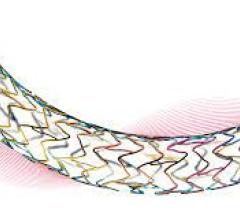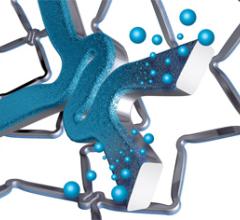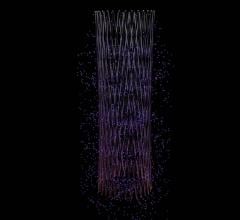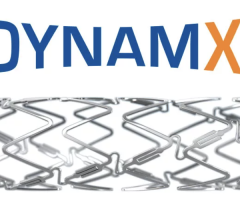March 30, 2008 - One-year data from the ENDEAVOR IV trial showing strong clinical efficacy for Medtronic's Endeavor drug-eluting stent were presented today at the American College of Cardiology meeting held in Chicago, IL.
Entitled "One-Year Clinical and Angiographic Results in Diabetics from ENDEAVOR IV: A Randomized Comparison of the Endeavor Drug Eluting Stent System Versus Taxus in de novo Native Coronary Lesions (2803-8)" the presentation featured an analysis of 477 diabetic patients from the ENDEAVOR IV clinical study. ENDEAVOR IV is an ongoing head-to-head comparison of the Endeavor and Taxus stents in 1,548 patients.
The safety and effectiveness of the Endeavor stent have not been established in diabetic patients. Data would first require both FDA review and approval.
"Performance of drug-eluting stents in diabetic patients is scrutinized by doctors because diabetes complicates so many aspects of the angioplasty procedure. Achieving good efficacy is more difficult, and safety concerns are significantly increased"? said Dr. Jeffrey Popma, director of invasive cardiovascular services, Caritas Cardiovascular Center for the Caritas Saint Elizabeth's Medical Center in Boston, and director of the core lab that performed the angiographic analysis for the entire ENDEAVOR clinical program, including ENDEAVOR IV.
Launched in the United States in February and now available in more than 120 countries worldwide, the Endeavor stent is indicated for improving coronary luminal diameter in patients with ischemic heart disease due to de novo lesions of length 27mm in native coronary arteries with reference vessel diameters of 2.5mm to 3.5mm.
Impact of angiography on TLR reinforced
Also presented at the ACC scientific session were the findings of two other substudies from the ENDEAVOR IV clinical trial. One analysis, "The Impact of Mandatory Angiographic Follow-up on the One-Year Clinical and Angiographic Results From Endeavor IV: A Randomized Comparison of the Endeavor Drug Eluting Stent System vs. Taxus in De Novo Native Coronary Lesions" (2900-103)" illustrated the artificial impact of routine angiography on revascularization rates. The first 328 enrolled ENDEAVOR-IV patients were selected to undergo angiography immediately post-procedure and again after eight months. These results were compared to the subsequent 1,200 patients in whom angiography was not performed. In patients receiving angiographic follow-up, the TLR rate at 12 months was 8.5 percent for Endeavor and 3.0 percent for Taxus but with no angiographic follow-up, the TLR rates were 3.6 percent for Endeavor and 3.3 percent for Taxus. These findings support the ARC recommendations that PCI clinical studies assess lesion characteristics with angiography only after the follow up required to assess the primary clinical endpoint.
Side-branch occlusion with Endeavor
A second sub-analysis "The Fate of Side-Branches Among Patients Treated With Zotarolimus-Eluting and Paclitaxel-Eluting Stents: An ENDEAVOR-IV Substudy (2901-19)" looked at side-branch occlusion post-stenting. The analysis was conducted as doctors seek to explain the significantly increased rate of periprocedural MI with Taxus when compared to Endeavor observed in the ENDEAVOR IV clinical trial.
The ENDEAVOR IV clinical trial was not prospectively designed to evaluate side-branch occlusions, so further study is warranted.
ENDEAVOR IV is evaluating 1,548 patients at 80 clinical centers in the United States, with a primary endpoint of target vessel failure (TVF) at nine months and a secondary endpoint of major adverse cardiac events (MACE) at 30-days. The principal investigator is Dr. Martin B. Leon of Columbia University Medical Center and the Cardiovascular Research Foundation in New York.
The Endeavor drug-eluting stent is made of a cobalt alloy and is built on the same platform as Medtronic's popular Driver bare metal stent, which features a unique modular architecture designed to enhance deliverability. In addition to the cytostatic drug zotarolimus, Endeavor is coated with phosphorylcholine (PC) technology, a polymer designed to simulate the outside surface of a red blood cell and mimic the structure of the natural cell membrane. The combination of these components is designed to contribute to rapid, complete and functional healing of the endothelium.
For more information: www.medtronic.com


 July 02, 2024
July 02, 2024 

